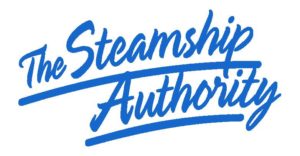FALMOUTH – A review of the Steamship Authority criticizes the agency for exhibiting “frugality” that hinders its ability to function properly and a tolerance of underperformance.
The comprehensive study was conducted by a private consultant and released to the public on Monday in Falmouth.
The highly anticipated assessment was commissioned after a series of mechanical failures over the spring and summer caused disruptions and cancellations.
Last spring, the boat line experienced three blackouts, a grounding, and a number of critical IT system outages.
“The resulting trip delays and cancellations, coupled with breakdowns in communication to the public, resulted in a public relations crisis and a call to action by the SSA’s governing Board on behalf of their constituents,” said the consultants in their executive summary.
Among several recommendations, the report called for better communication with the public, a realignment of operations and less reliance on “penny pinching.”
John Sainsbury, one of the authors of the study did say the SSA is a safe boat line, but called on them to adopt a “safety management system.”
He said the changes that are needed to overhaul the entire organization will not be easy and will upset many who have been working at the boat line for many years.
The review focused on five subject areas: fleet maintenance, vessel operations, management structure, public communications, and IT systems.
In July of 2018, a team of experts in those subject areas visited the SSA.
The team conducted interviews with employees throughout the organization, observed vessel operations, and inspected the vessels, terminals, maintenance facilities.
“The team utilized root cause analysis techniques to identify critical errors that directly and indirectly resulted in the incidents that led to the crisis,” the report said.
It went on to say the goal of the study was to, “understand the underlying causes of the SSA’s failures to deliver on its public service commitments and develop recommendations for how to prevent similar incidents from occurring in the future.”
The boat line was criticized for exhibiting a level of frugality, or “penny pinching,” that hinders its ability to implement best practices and function properly.
“SSA’s frugality is based on admirable goals, but its overemphasis on cost reductions has been penny wise and pound foolish.”
The report went on to say that excessive frugality has resulted in understaffing across the organization, but especially in key technical roles within vessel operations and engineering.
“This has directly and indirectly contributed to vessel incidents. These incidents end up costing SSA due to unplanned maintenance and lost revenue,” the report found.
Steamship Authority General Manager Bob Davis said with the report released, it’s now up to management to make improvements.
“Some of the suggestions are easier to implement than others, which may carry significant costs in terms of dollars and logistics,” he said in a statement.
“While these are very realistic factors that need to be considered, we will not allow them to impede our progress.”
“The process of hiring HMS Consulting to perform this study was born from one of the most challenging periods in the Authority’s history, but I believe that our operations will benefit from the insight contained in the final product,” he said.
The report also cited an understaffing of upper management, relying on a small number of individuals who hold inordinate amounts of knowledge and power.
“The primary focus of these roles should be long-term sustainability and improvement of the organization, but almost no long-term planning is currently being performed,” the report stated.
It found that smart investments in safety and quality will actually reduce overall costs, while improving public perception and employee morale.
“Investing in the most valuable asset, the employees, will become a force multiplier.”
The consultants found that while public backlash was justified by the series of incidents in early 2018, it wasn’t due to a lack of commitment by the employees.
They said the agency had a poor track record in communicating with the public, creating a public perception that may be “ill-informed and not property managed.”
They were praised, however, for never relying on government subsidies and only having four operating deficits since 1962.
“Few public ferry services in the U.S., and globally for that matter, are able to achieve similar success while providing a quality service,” the report said.
“This is an impressive accomplishment that is not fully understood or appreciated by the public they serve.”
The way the boat line publicizes its mission was also highly criticized.
“By contrast, the SSA does not actively publicize its mission, so it is left to interpretation by the workforce and the public’s perceptions of the actions of SSA leadership.”
For decades, consultants said the message from leadership has been narrowly focused on frugality.
“A broader vision may include financial aspects but should also seek to achieve the high quality and safe delivery of a service as primary objectives.”
The report also found that a lack of clear vision has led to competing factions within the organization.
“This appears in regular interactions between various departments and individuals, resulting in different factions undermining and working against each other at the expense of the organization’s performance.”
In seeking ways to improve, the report said it was necessary to evolve from a “reactive culture to a process-based culture.”
“The SSA operates almost entirely reactively, rather than actively identifying and attempting to mitigate risks. SSA standards for vessel operations and maintenance illustrate this culture, where the de facto standards for safety and quality assurance are the minimum requirements enforced by the US Coast Guard,” it found.
Interviews with SSA employees also found some who did not feel any need to change or modernize.
“We have operated this ferry system for years and years without problems like we had in the spring of 2018, and we will operate for years and years without any similar issues,” one unidentified employee was quoted as saying in the report.
“This was a perfect storm of events. There’s nothing broken here, it’s always worked,” another employee said.
The consultants were highly critical of that mind set.
“But from our experience, this could not be further from the truth. The root cause analysis (RCA) performed on the March 17th MV Martha’s Vineyard blackout identified twenty-one individual issues with the vessel plant and the way it was operated.”
“The net result of all of these issues was an unsafe condition on the vessel that led to the incident. While the blackout did not result in any serious casualties, had it occurred minutes later, while the vessel was maneuvering into the dock, the consequences could have been dire,” they found.
The identification and correction of just one of the twenty-one issues mentioned above may have prevented the incident entirely, the report found.
The study also found a lack of accountability within SSA management.
“Underperformance is being tolerated because the SSA lacks a system to adequately measure employee performance and the resolve to address obvious underperformers. SSA managers demonstrated the tendency to place blame for vessel incidents on individual crew members, rather than taking responsibility for the tools or systems they lack but require in order to succeed.”
“Concluding that an incident is simply due to operator error is a missed opportunity to understand why the error occurred and how to improve system resilience,” the report stated.
They consultants said holding managers accountable to performance metrics based on a strategic plan will improve efficiency by aligning efforts.
As part of the report’s release, Steamship Authority managers released a list of improvements and changes that have already been put into place and areas where they are succeeding.
The following is that list:
Safety and training
– The Authority meets and often exceeds U.S. Coast Guard standards for training. Each
vessel holds routine safety drills on weekly, monthly and quarterly schedules.
– The Authority staffs its vessels at or in excess of U.S. Coast Guard requirements. For example, it staffs a chief engineer on board the M/V Katama and M/V Gay Head although
Coast Guard regulations do not require such a posting.
– It has begun work on vessel-specific manuals, starting with the M/V Woods Hole. That document, which includes checklists and performance standards along with photos and videos of emergency and operational procedures, will be used as a template to make the remaining work flow to create other vessels’ manuals in the coming months that much smoother.
– Within the first year of being hired, all ordinary seamen new to the organization typically go through an International Convention on Standards of Training, Certification and
Watchkeeping (“STCW”) weeklong training program at the Massachusetts Maritime Academy. The certification, which is good for five years and is not required by the U.S. Coast Guard, is offered to up to 60 employees per year and covers topics such as first aid, firefighting, personal safety and personal survival techniques.
– The Authority offers regular CPR and first-aid training for its landside and on-ship personnel.
– It offers or funds more than two dozen professional development opportunities for its personnel, including those interested in obtaining licensing as a pilot or captain.
Vessel maintenance
– Beginning last spring, the Authority implemented a new policy whereby additional sea trials are performed by its personnel on vessels that are coming out of repair periods to identify potential problems with performance before submitting the vessel to the U.S. Coast Guard for inspection.
– For the past 10 years, it has followed a policy in which its vessels are dry-docked every two (2) years, which is above the Coast Guard standard for “H” classed vessels of two (2)
every five (5) years, with not more than three (3) years in between dry-dockings.
Operations
– The Authority has begun to establish the Operations and Communications Center at its Palmer Avenue administrative office building, which will serve as a nerve center for communications from its vessels and terminals and to its employees and customers.
– It is implementing a new accounting system, Microsoft Dynamics NAV (Navision) Enterprise Resource Planning, that will replace its legacy, 40-year-old system and allow for seamless interfacing between time clocks, payroll and, human resources.
– It is replacing Maximo, its legacy system for tracking maintenance assets and work orders, with TAG, an off-the-shelf product that is being customized for its needs. TAG will allow for integration with the Authority’s new accounting and inventory systems and will allow the vessels and terminals greater ability to access the system, even while out of range of wireless systems.
Information technology
– The Authority moved to govDelivery for its monthly e-News and trip alert emails to allow for better management and delivery of its messages to customers who have opted in to the service.
– It has performed load testing with an external firm to determine the maximum user capacity of its website and continue to test the system to its breaking point.
– It is working to develop a smartphone app that will include ticketing on traditional ferries and other new offerings.
– It has redesigned its general internet opening plans for the summer 2019 sailing schedule to start accepting reservations on each route on different days to make the customer experience as smooth as possible.
Internal information management
– Using a template created for the accounting department, all departments will be working to document policies and procedures to allow for more efficient transitions of institutional knowledge between long-tenured employees and new hires.
– As previously stated, the Authority has begun work on vessel-specific manuals, accompanied by photos and videos, to document operational and safety procedures for crew members who may not be familiar with a particular vessel.
The review was conducted by HMS Consulting, Glosten and Rigor Analytics.
By ROB WOODARD and MATT PITTA, CapeCod.com NewsCenter
























